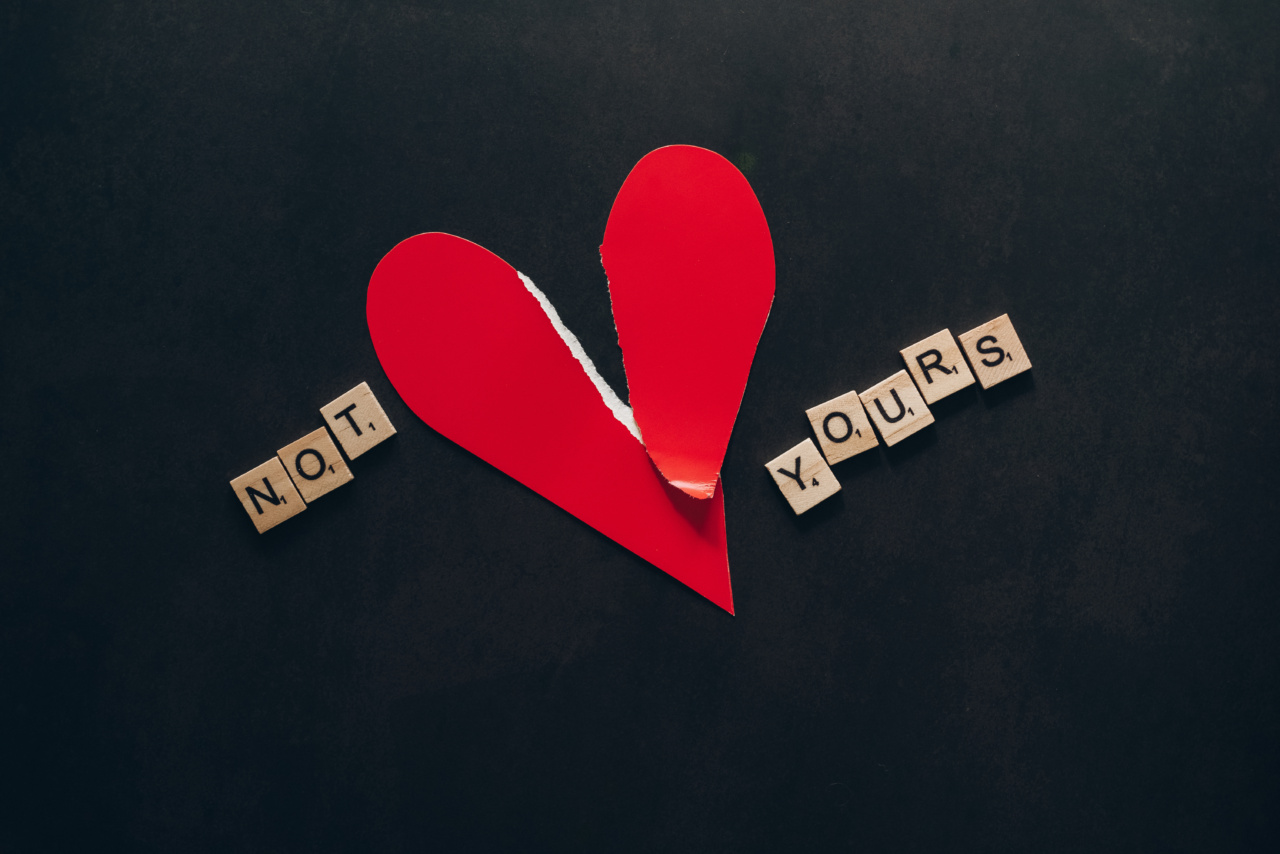When it comes to dieting, many people focus solely on weight loss or improving their physical appearance.
While these goals are important for overall health and self-confidence, they can often have unintended consequences on other aspects of our lives, including our love life. In this article, we will explore the potential ways in which your dieting habits could be affecting your romantic relationships and provide some guidance on maintaining a healthy balance.
The Emotional Toll of Dieting
Embarking on a diet or restrictive eating plan can be emotionally challenging. It often requires willpower, discipline, and sacrifices, which can lead to increased stress levels and a negative mood.
This emotional toll can spill over into your relationships, making it difficult to fully engage in and enjoy the company of your partner.
Furthermore, the constant preoccupation with food and self-image can consume your thoughts, leaving little mental energy for nurturing your relationship. Your partner may feel neglected or unimportant, causing strain and potential conflicts.
Dieting and Body Image Issues
Dieting can exacerbate body image issues, which are already prevalent in today’s society.
Constantly obsessing over calories, weight, and appearance can create an unhealthy relationship with food and your body, leading to low self-esteem and a distorted body image.
These negative feelings about your body can affect your confidence and intimacy levels with your partner. You may find it difficult to feel comfortable and vulnerable during intimate moments, hindering the overall satisfaction of your love life.
The Impact on Intimacy
Dieting often involves strict food rules and limitations, which can impact your ability to enjoy meals and socialize with your partner. Sharing meals together is an important bonding experience for couples, fostering a sense of connection and intimacy.
If you constantly decline food-related activities or feel guilty about indulging occasionally, it can create a divide between you and your partner.
Moreover, restrictive eating and extreme dieting can lead to a decrease in libido and sexual desire.
Nutritional deficiencies, hormonal imbalances, and overall physical exhaustion can all contribute to a decline in sexual function and interest, further straining your relationship.
Communication Breakdown
Engaging in drastic dieting measures or frequently talking about your diet can lead to a breakdown in communication with your partner.
If you constantly talk about calorie counting, juicing, or restrictive eating, it can become a one-sided conversation that may not interest your partner. This can result in a lack of connection and shared interests.
Additionally, your dieting habits may inadvertently trigger your partner’s insecurities or body image issues.
If they witness you consistently criticising your own appearance or engaging in extreme dieting, they may start questioning their own attractiveness or feel pressured to follow suit. These dynamics can strain the relationship and create unnecessary tension.
Finding a Healthy Balance
While it is essential to prioritize your health and well-being, it is equally important to establish a healthy balance between your dieting goals and your love life.
Here are some tips to promote a harmonious relationship while pursuing your health goals:.
1. Engage in Open and Honest Communication
Talk openly with your partner about your dieting goals and motivation. Help them understand why it is important to you, but also listen to any concerns they may have. Create space for dialogue and reassurance.
2. Prioritize Quality Time
Set aside dedicated time for your partner where you can focus solely on them and enjoy activities that strengthen your bond.
This will help to counterbalance any negative feelings associated with dieting and create a sense of normalcy in your relationship.
3. Emphasize Health Over Appearance
Shift your focus from solely promoting a certain physical appearance to prioritizing overall health and well-being. Encourage your partner to engage in activities that promote health rather than obsessing over their appearance or weight.
4. Seek Professional Support
If you find that your dieting habits are causing significant distress or strain in your relationship, consider seeking professional help.
A therapist or registered dietitian can provide guidance and support in finding a healthier approach to food and body image.
5. Practice Self-Care
Ensure you are taking care of your mental, emotional, and physical well-being beyond just your diet. Engage in activities that promote relaxation, stress relief, and self-compassion.
Prioritizing self-care will allow you to be more present and fulfilled in your relationship.
The Bottom Line
Your dieting habits can have a significant impact on your love life. It is important to be mindful of the potential emotional toll, body image issues, impact on intimacy, and communication breakdowns that may arise.
Striving for a healthy balance between your health goals and relationship is key to maintaining a fulfilling and harmonious love life.




























